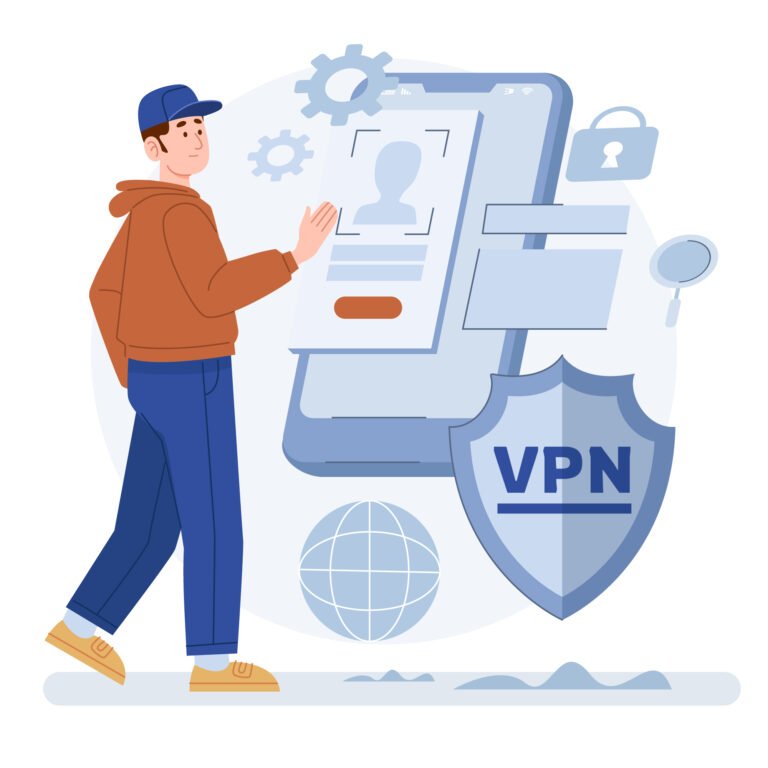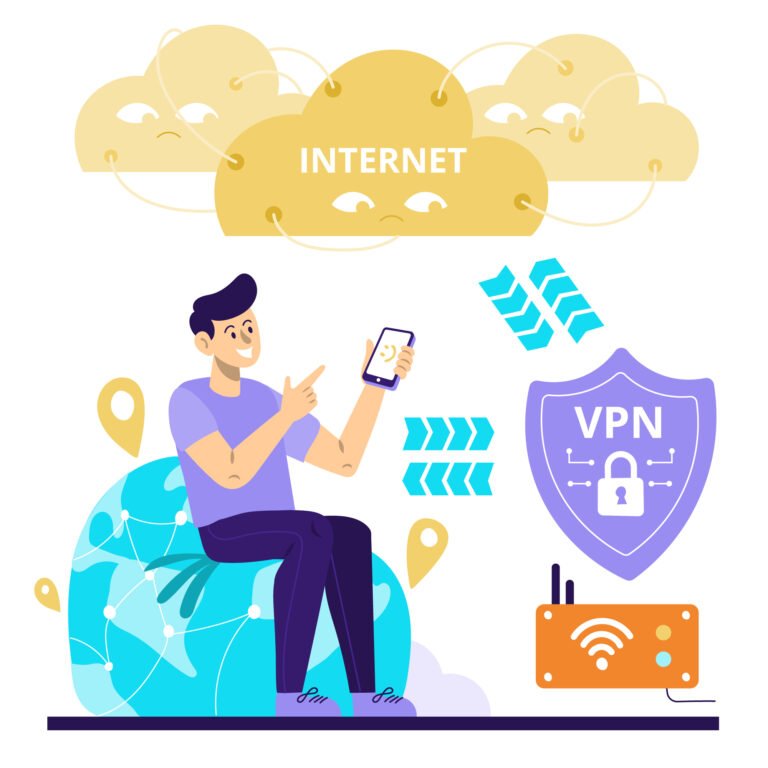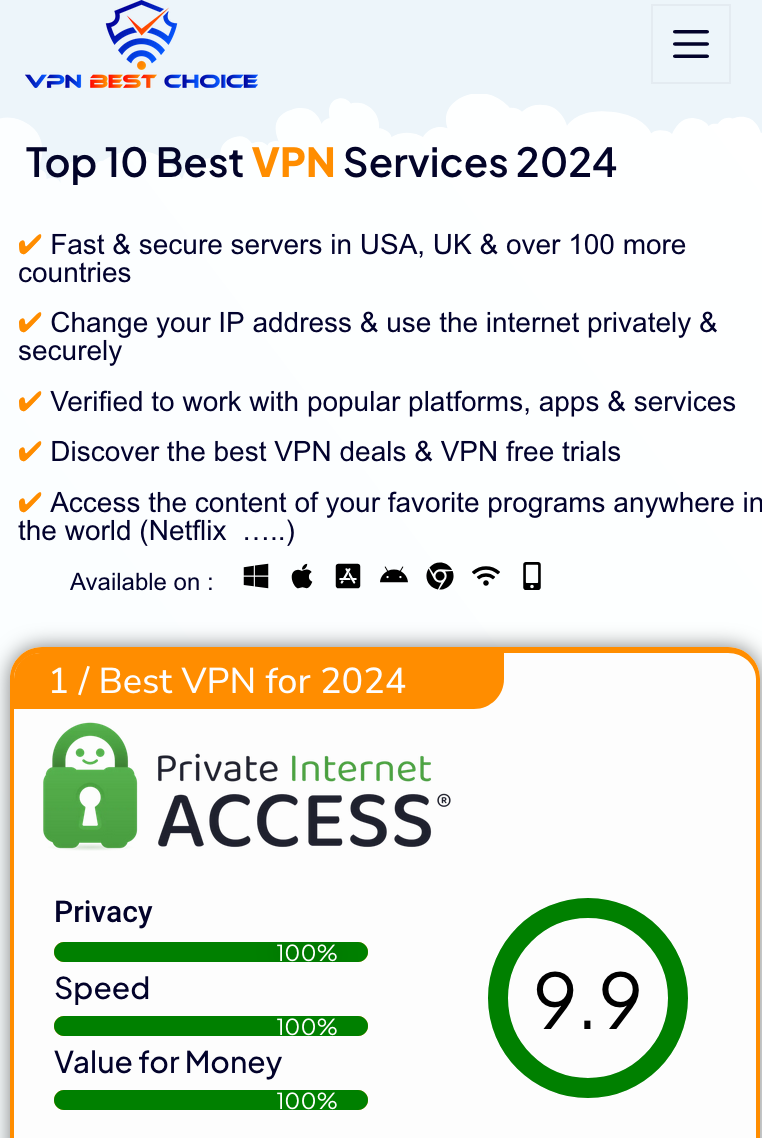VPN, which stands for Virtual Private Network, is an essential tool in today’s digital world for keeping your online activities secure and private. With many VPN providers offering different features, it can be tough to choose the right one. So, let’s explore the important things to think about before picking a VPN that’s perfect for you.

Contents
Determine your VPN needs:
Before diving into the world of VPNs, it’s essential to pinpoint exactly why you’re considering using one. Here are some common reasons:
- Privacy and Security: If you’re concerned about keeping your online activities private and secure from prying eyes, a VPN encrypts your internet connection, preventing anyone from intercepting your data.
- Streaming and Browsing: Are you tired of encountering buffering issues while streaming your favorite shows or accessing geo-restricted content? A VPN can help bypass these limitations by providing access to servers in different locations, allowing for smoother streaming and unrestricted browsing.
- Gaming: Gamers can also benefit from using a VPN. It can reduce lag, improve ping times, and protect against DDoS attacks, providing a more seamless and secure gaming experience.
- Device Compatibility: Consider the number and types of devices you want to connect to the VPN. Whether it’s your laptop, smartphone, smart TV, or gaming console, ensure that the VPN service supports all your devices.
By identifying your specific needs and priorities, you can narrow down your options and choose a VPN that caters to your requirements, whether it’s enhanced privacy, seamless streaming, improved gaming performance, or broader device compatibility.
Things to Consider While Choosing a VPN:
1 – Security and Privacy:
VPNs were created to keep you safe online. They encrypt your internet connection, making it unreadable to hackers and others trying to spy on you. They also hide your IP address, so websites can’t track your online activities. However, some VPNs might accidentally leak your data if the connection drops. That’s why it’s crucial to pick a VPN that’s known for its strong security features and doesn’t leak your information.
Be cautious with free VPNs – they often make money by selling your data to advertisers. Paid VPNs invest more in keeping you safe and private. Look for a VPN that’s regularly checked by independent experts to make sure it’s doing what it promises to do.
2 – Speed:
When selecting a VPN, prioritize speed to avoid frustrating lags and buffering, especially during gaming or other bandwidth-heavy activities. Look for providers with a reputation for maintaining fast performance, even when connecting to distant servers. Additionally, using a VPN can shield you from ISP throttling, ensuring a consistently smooth internet experience while protecting your online activities from unwanted surveillance.
3 – Strong Encryption:
Encryption is like a digital lock that keeps your data safe from prying eyes. Make sure your VPN provider uses strong encryption protocols like AES-256 to scramble your data and protect it from hackers and other cyber threats. It’s the gold standard for securing sensitive information and should be a must-have feature in any VPN service you’re considering.
4 – Easy Setup and Use:
A user-friendly interface and straightforward setup process are paramount, especially for novice VPN users. Choose a provider that offers intuitive applications across various devices, making it effortless to connect to the VPN and customize settings according to your preferences.
5 – Simultaneous Connections:
Opt for a VPN that supports multiple device connections, particularly for larger households. Having a generous number of simultaneous connections means you can keep all your devices connected without having to juggle or disconnect them constantly. It offers the convenience of seamlessly transitioning between devices for both work and leisure activities.
6 – Number of Servers and Their Locations:
A larger number of VPN servers typically equates to faster internet speeds and smoother web connections. With more servers, the load per server decreases, potentially enhancing your bandwidth. Additionally, a greater number of servers ensures broader global coverage and a more reliable connection. In the event that one server becomes unavailable, there are plenty more to seamlessly take its place. Furthermore, servers in various locations offer more flexibility in spoofing your virtual location and maintaining anonymity from your Internet Service Provider (ISP).
7 – Supported VPN Protocols:
Think of VPN protocols as the rules of the road for your internet traffic when using a VPN. Different protocols offer varying levels of security and performance, so it’s crucial to have options. Here are a few common ones:
- OpenVPN: Often considered the most secure and versatile protocol, compatible with most devices and platforms.
- IKEv2/IPSec: Known for its speed and reliability, making it a popular choice for mobile devices.
- L2TP/IPSec: Provides strong encryption but may not be as secure as others. Still commonly supported on older devices.
- SSTP: Developed by Microsoft, offering good security and the ability to bypass firewalls, but not as widely supported.
- WireGuard: A newer protocol known for its speed and efficiency, gaining popularity for its performance.
Ensure your VPN provider offers a variety of protocols so you can choose the one that best fits your needs, whether it’s security, speed, or compatibility with your devices. Having options allows you to customize your VPN connection for an optimal experience.
8 – Logging Policy:
When it comes to your online privacy, the logging policy of a VPN provider is critical. Logging refers to the practice of recording and storing user activity data, which can include browsing history, IP addresses, timestamps, and more. Here are some common types of logging policies:
- No-Logs Policy: This is the gold standard for VPN privacy. A VPN provider with a strict no-logs policy commits to not collecting or storing any user data. This means they don’t keep records of your online activities, ensuring your browsing history remains private and anonymous.
- Minimal Logs Policy: Some VPN providers may claim to have a minimal logs policy, meaning they only collect minimal data necessary for operating their service, such as account information and payment details. However, they should still not retain any information that could be used to identify individual users or their online activities.
- Connection Logs: Some VPNs may log certain connection details, such as the time you connect to their servers and the amount of data transferred. While these logs are less intrusive than browsing logs, they can still compromise your privacy to some extent.
- Data Retention Laws: It’s also important to consider where the VPN provider is based, as different countries have different data retention laws. Some countries may require VPN providers to retain certain user data for a specified period, which could potentially jeopardize your privacy.
When choosing a VPN provider, opt for one with a transparent and stringent no-logs policy or at least minimal logs policy. This ensures that your online activities remain private and anonymous, protecting your sensitive information from prying eyes and potential surveillance.
9 – Additional Features:
Consider any additional features offered by the VPN provider, such as ad-blocking, malware protection, or dedicated IP addresses. These supplementary features can enhance your overall online experience and provide added value to your VPN subscription.
10 – Customer Support:
When selecting a VPN provider, consider the quality of their customer support services. Opt for providers that offer responsive and knowledgeable support teams available 24/7 through various channels such as live chat, email, phone support, and support tickets. This ensures that any technical issues or concerns you encounter can be addressed promptly and effectively, enhancing your overall VPN experience.
11 – Payment Methods:
When selecting a VPN provider, it’s essential to consider the payment methods they offer. Look for providers that support a wide range of payment options, including credit/debit cards, PayPal, cryptocurrency, and prepaid cards.
Opting for a VPN that accepts anonymous payment methods like cryptocurrency or prepaid cards can further enhance your privacy. These methods allow you to make payments without disclosing personal information, ensuring your financial transactions remain discreet and untraceable.
By choosing a VPN provider with diverse payment options, you can select the method that best suits your preferences and privacy concerns, ensuring a seamless and secure transaction process.
12 – Money Back Guarantee:
A reputable VPN provider should offer a money-back guarantee or free trial period, allowing you to test their service risk-free before committing to a subscription. Take advantage of this opportunity to evaluate the VPN’s performance and determine if it meets your expectations.
13 – Multilingual App:
From the user’s perspective, a multilingual app enhances accessibility and usability. It allows users to navigate and utilize the application more efficiently in their preferred language, potentially reducing the need for customer support. Additionally, users feel valued when a company offers services in their language, fostering a positive user experience and loyalty.
In conclusion, your online security and privacy are paramount in today’s digital age, and choosing the right VPN provider is crucial. Our website streamlines this process by offering comprehensive comparisons of various VPNs, empowering you to make an informed decision tailored to your specific needs.
With our user-friendly interface and detailed analyses, we take the guesswork out of selecting the perfect VPN. Whether you prioritize security, speed, or ease of use, we provide the tools and information you need to find the best option for safeguarding your online activities.
Don’t leave your privacy to chance. Take action now and choose a VPN that provides the protection and peace of mind you deserve. Let our website be your guide as you navigate the world of VPNs and secure your digital presence today.





